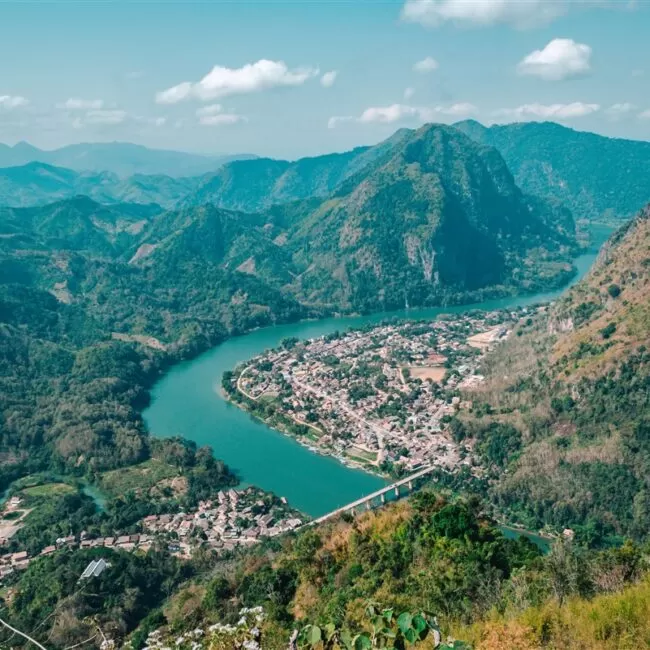

Embarking on a Vietnamese escapade stirs thoughts of bustling markets and verdant rice paddies! It’s one of the most beautiful countries in the world but amidst all this beauty, sooner or later, a practical question arises: “Can you drink the tap water in Vietnam?” The tap water narrative in Vietnam is a complex tale, with metropolitan areas boasting treatment facilities, yet the assurance of safety in a sip remains elusive. Here is everything you need to know about tap water in Vietnam!
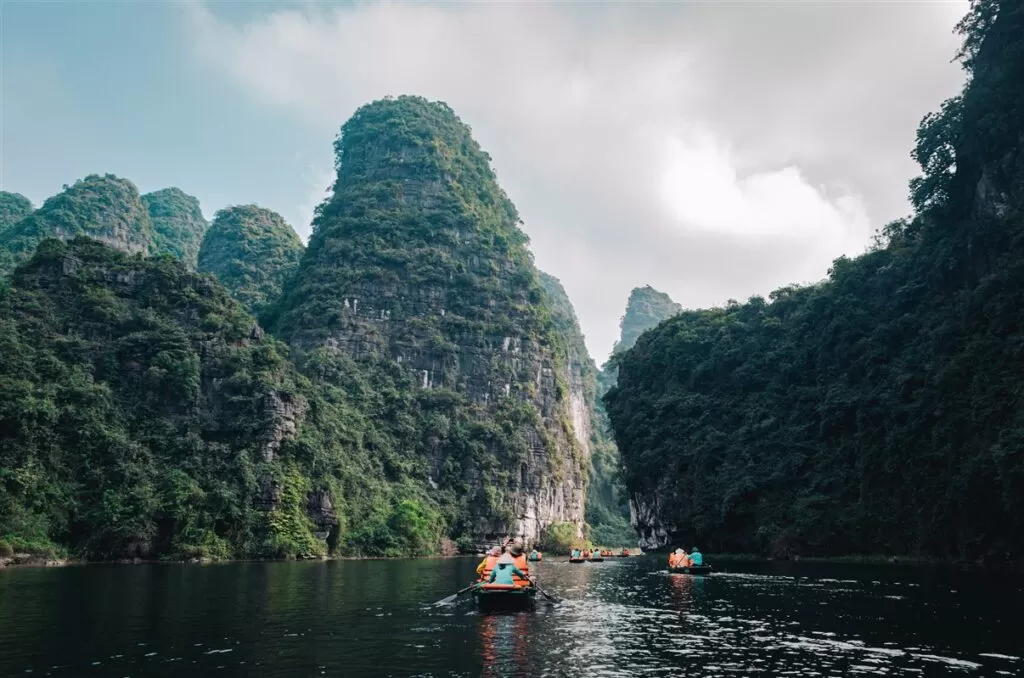
A boat tour in Trang An, Vietnam
Veiled in morning mists that rise to unveil emerald peaks, Vietnam is a country of natural wonder and cultural complexity. Its landscapes, a rhythmic pattern of lush rice terraces and pulsating cities, vibrate with the energy of a land undeterred by its storied past.
Each street corner tells a tale, be it through the sizzle of street food vendors offering pho that sends aromatic whispers into the dawn or through the silent stoicism of colonial architecture standing guard over a history rich with resilience.
Vietnam invites the conscious traveler to not just observe but to immerse in its narrative – to sip slowly on its robust coffee and listen to the stories that the monsoon rains recount upon old, tin roofs.
But, we are here to talk about the tap water in Vietnam. Let’s dive into it!
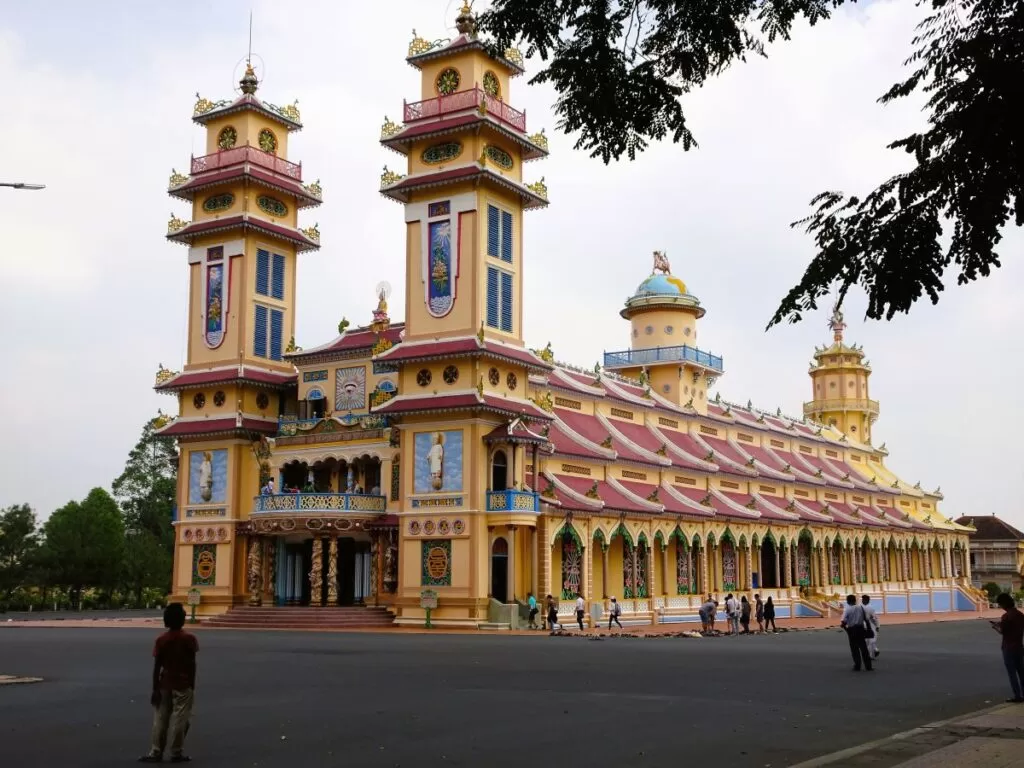
Cao Dai, a beautiful Southeast Asian temple in Vietnam
In Vietnam, it’s generally advised that you avoid drinking tap water directly from the tap. While the tap water in urban areas is treated and purified at the source, the distribution system may lead to contamination before it reaches the tap. Moreover, in rural areas, the water treatment facilities might not be as advanced or consistent.
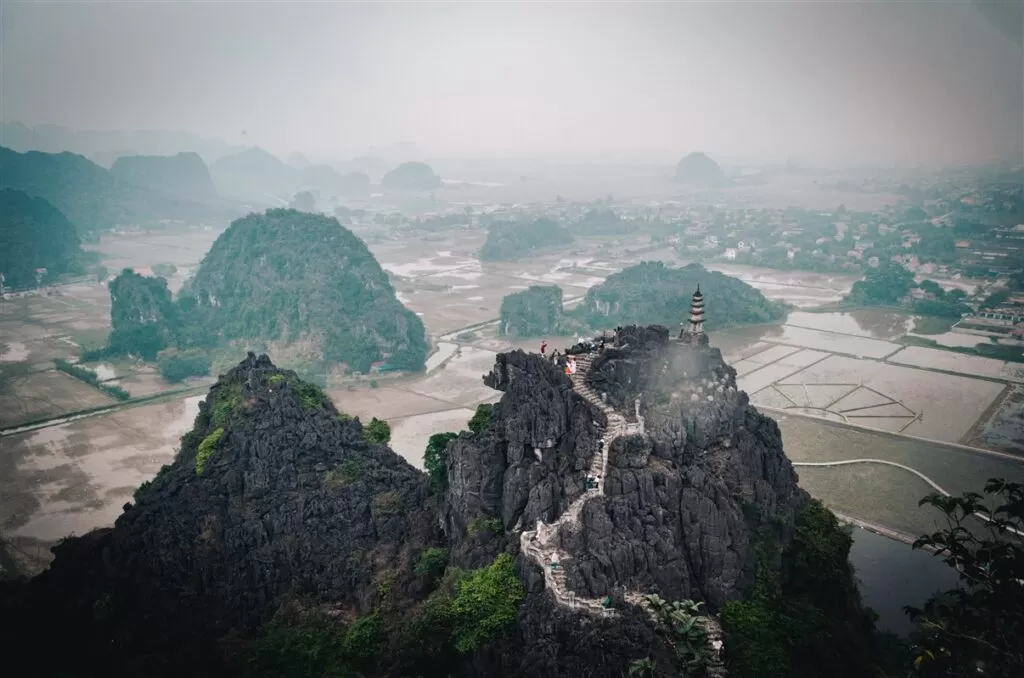
Tap water in Vietnam is not considered safe for drinking straight from the tap for travelers and expatriates. The water supply can contain microorganisms and chemical compounds that may not be suitable for direct consumption due to differences in water treatment and plumbing infrastructure. It is advisable to use bottled water for drinking and making ice, ensuring the seal is intact when purchasing to avoid any tampered bottles.
For those who are environmentally conscious and wish to minimize plastic usage, water purification methods such as boiling, filtering, or using sterilization tablets can be effective alternatives to make the water safe for drinking. Many hotels and hostels also provide access to clean drinking water for their guests.
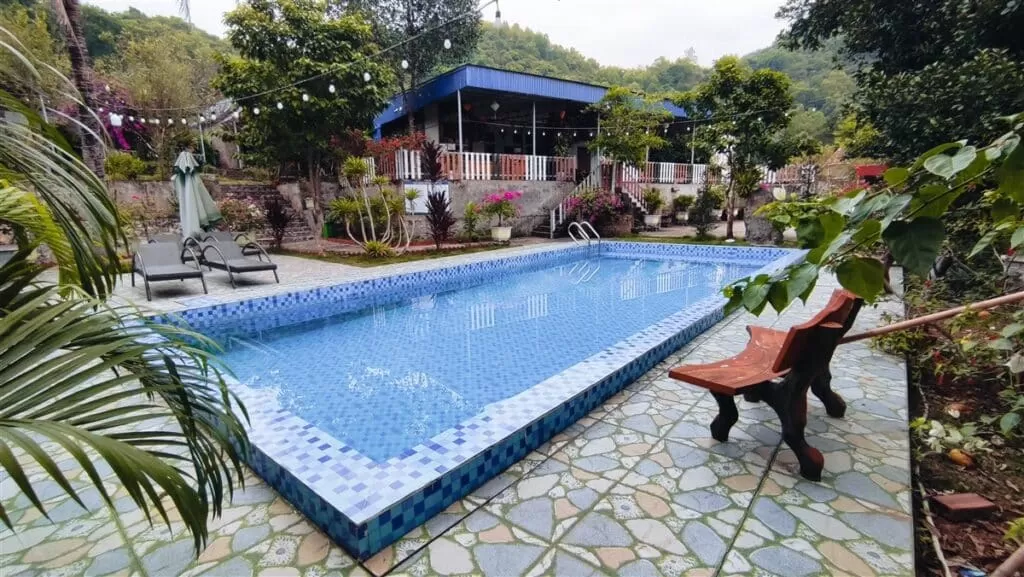
A superb homestay in Cat Ba National Park
In Vietnam, while the tap water is not generally safe to drink without proper treatment, brushing your teeth with it is usually considered okay. Most locals and long-term expatriates brush their teeth using tap water without ill effects. The body can generally handle the minuscule amount of water used during this process.
However, for short-term travelers with sensitive systems or those particularly concerned about gastrointestinal issues, it might be prudent to use bottled or boiled water for brushing teeth to eliminate any risk of infection. When in doubt, follow the same protocol you would for drinking water, especially if you’re in a remote area or if you know that the local water supply has a high risk of contamination.
I won’t ever brush my teeth with tap water even if there’s just a small chance that it is contaminated. It’s just not worth the risk.
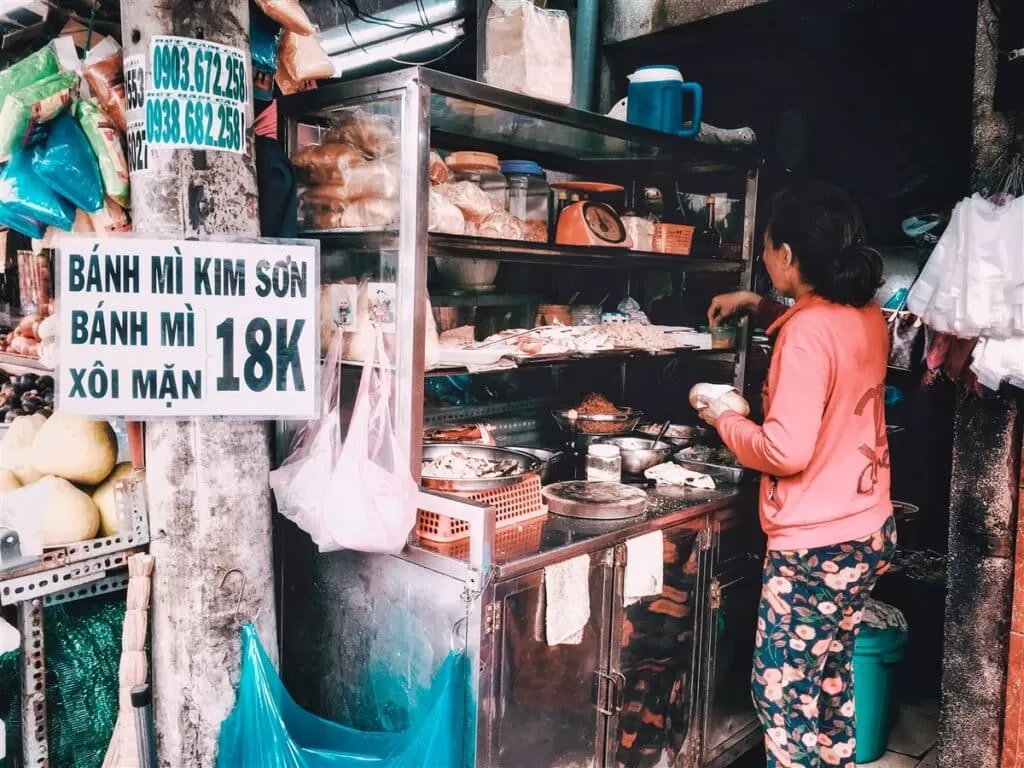
Street food stalls in Hanoi
In Vietnam, locals typically do not drink tap water straight from the tap without boiling or treating it first due to concerns about contamination and water-borne illnesses. Instead, they often boil water to make it safe to drink or purchase bottled water, particularly in urban areas where water quality can be inconsistent.
Water treatment plants and infrastructure may not always eliminate all the potential contaminants, especially in rural or less developed areas. Furthermore, the condition of the pipes in the distribution system can also affect water quality. As a result, it is common practice to treat tap water before consumption, and most households would have some method of doing so.
For cooking purposes, boiling water is usually sufficient, and that’s a typical approach in local households. Additionally, water purification systems and bottled water dispensers are increasingly common in homes and businesses throughout the country.
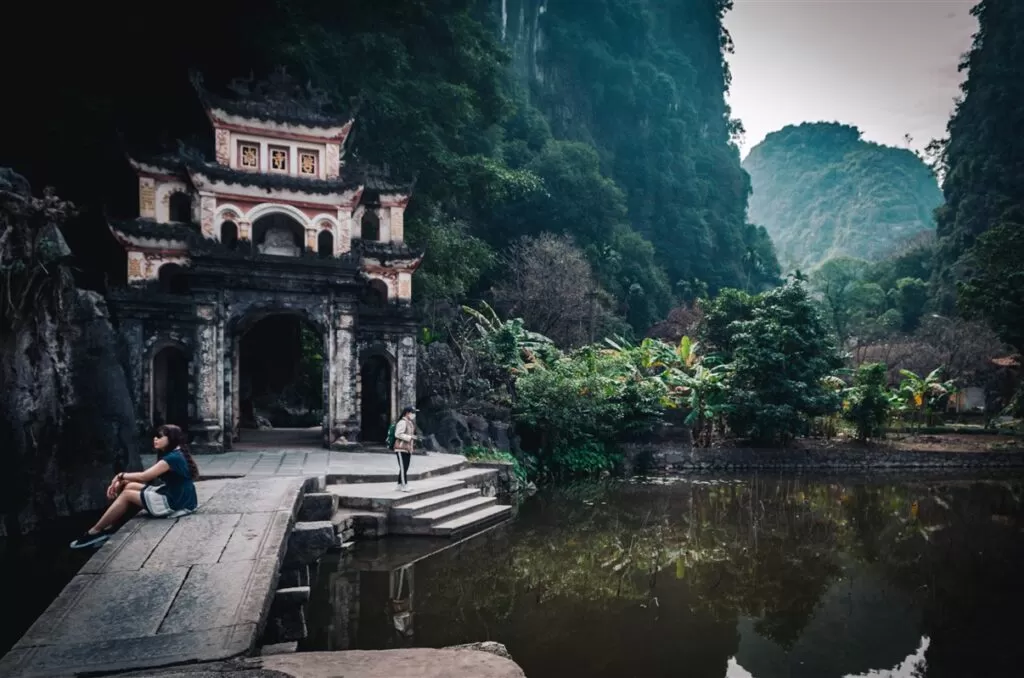
Bich Dong Pagoda in Ninh Binh, Vietnam
In Vietnam, the safety of consuming ice cubes can vary depending on the source of the ice. Ice produced using tap water that hasn’t been properly treated may pose the same health risks as drinking the tap water itself. However, most restaurants, cafes, and food vendors that cater to tourists use ice made from purified water, which is generally safe to consume.
In cities and well-established tourist areas, the ice is often commercially produced and delivered in large bags, which typically come from companies adhering to higher standards of water purification. These bags are usually marked with a circular logo, indicating that they have been inspected and approved by the health department.
Nevertheless, when traveling throughout Vietnam, especially in rural or less developed areas, it’s wise to be cautious. If you are uncertain about the quality of the ice, it’s best to avoid it. When at a street vendor or in a rural setting, you can always ask if the ice is made from bottled or purified water. If in doubt, opting for no ice or drinking bottled beverages is the safest choice.
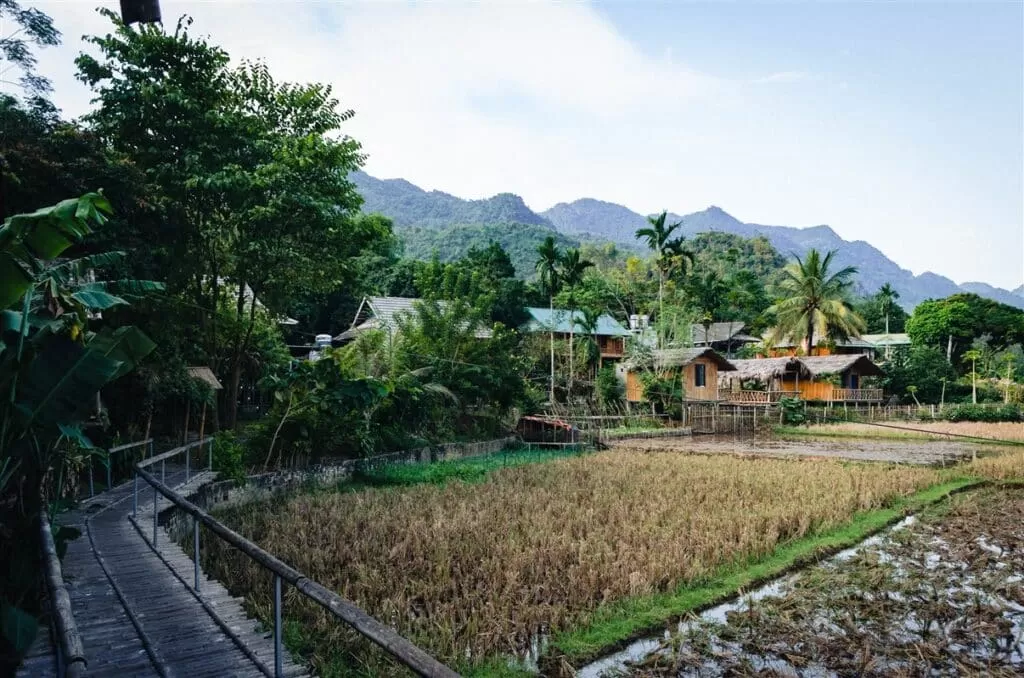
Cute homestays in Mai Chau, Vietnam
Boiling tap water in Vietnam can make it safe to drink to a large extent because the high temperature kills most bacteria, viruses, and parasites that might be present in the water. Boiling is a common method used worldwide to purify water where its safety cannot be guaranteed.
For water to be considered safe by boiling, it should be brought to a rolling boil for at least one minute. In high altitude areas, where the boiling point of water is lower, it’s recommended to boil water for at least three minutes.
However, boiling will not remove chemical contaminants that might be present in the water. In areas where industrial or agricultural pollution is a concern, even boiled water might still carry some risk due to dissolved chemicals or heavy metals that are not eliminated by boiling.
In urban centers and tourist areas, boiled tap water is commonly used for making tea or coffee and is generally safe for consumption. Nonetheless, many travelers and locals prefer to drink bottled or filtered water to ensure water quality and avoid potential health risks.
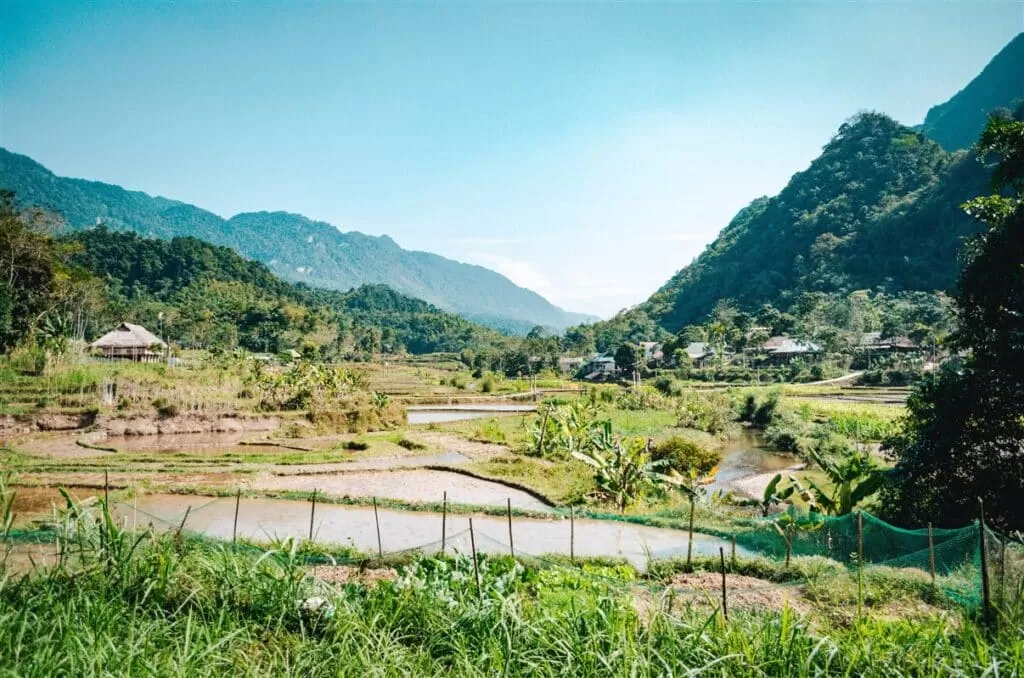
Rice fields and mountains in Pu Luong, Vietnam
In Vietnam, water dispensers have become increasingly common, particularly in areas frequented by tourists. You’ll often find them in hotels, hostels, gyms, and even some cafes and restaurants. This accessibility makes carrying a reusable water bottle both practical and beneficial.
Reducing the use of single-use plastic bottles is crucial, as plastic waste is a significant environmental issue in Vietnam. By refilling a reusable water bottle, you are actively reducing your plastic footprint.
However, it’s essential to note that while water dispensers are readily available in tourist areas, they may not be as common in rural or less developed areas. In such cases, it would be wise to have a bottle with a built-in filter or purification system to ensure the water you consume is safe. Always check the quality and maintenance of public water dispensers before using them to fill up your bottle.
When you want to buy a water bottle for your trip, ensure you buy one that is eco-friendly and/or recyclable. Here are some sustainable water bottle brands that are doing their bit for the environment.
Here are a few things to know about bottled water in Vietnam:
By keeping these considerations in mind, as a traveler, you can stay hydrated and healthy while also being environmentally conscious during your stay in Vietnam.
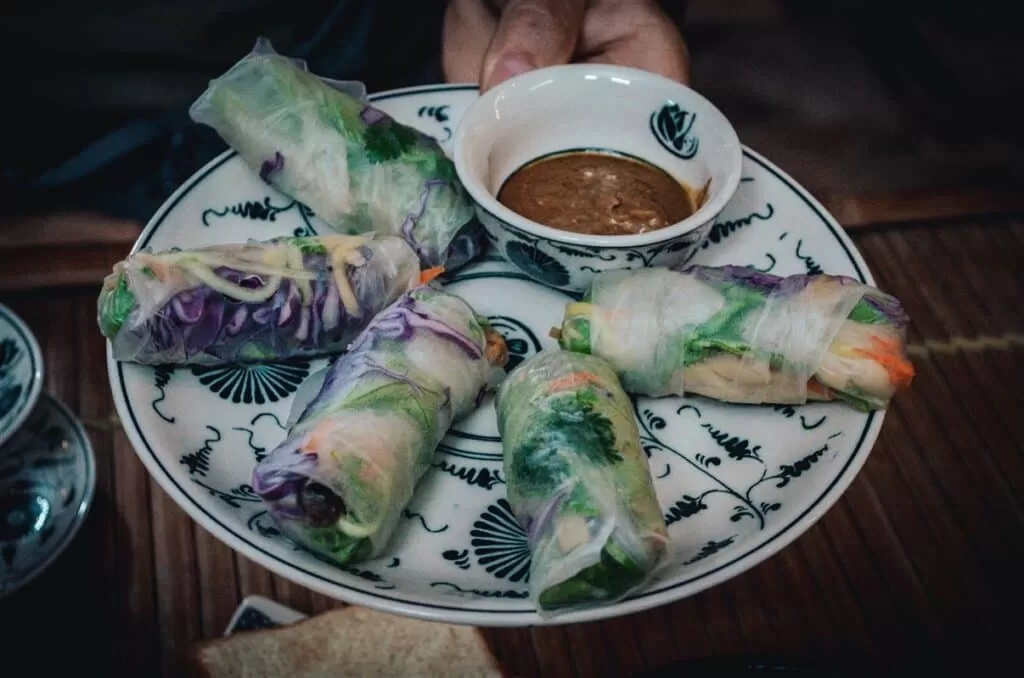
Fresh spring rolls: Incredible vegan food in Vietnam
Here are a few commonly asked questions about the use of tap water in Vietnam!
It is not recommended to drink tap water in Hanoi or in many other parts of Vietnam due to potential contamination and the risk of waterborne diseases. While the water treatment facilities might treat the water to a certain extent, the infrastructure and piping systems can contaminate the water on its way to the tap.
Drinking tap water directly in Ho Chi Minh City, as in most parts of Vietnam, is generally not recommended. The municipal water may go through purification processes, but the distribution system may lead to contamination. Hence, it’s safer to avoid drinking tap water straight from the faucet.
→ Also read: How to Get From Ho Chi Minh City to Hoi An
If you accidentally drank tap water in Vietnam, the most important thing is: Don’t Panic. Most travelers who consume a small amount of tap water do not experience any health issues. It’s common for people to consume some tap water inadvertently while showering.
Be vigilant for any symptoms of gastrointestinal distress, such as stomach cramps, diarrhea, nausea, or vomiting. These symptoms could arise due to waterborne pathogens.
If you begin to feel unwell and suspect it could be due to the tap water, seek medical advice. Most cities have clinics catering to foreigners or expats where English is spoken.
Some travelers, like myself, take probiotics to help maintain a healthy gut flora, which can be beneficial in preventing and treating mild stomach upsets. Another thing that can be useful is activated charcoal.
In many cases, a single sip of tap water won’t cause harm, especially if you’ve been in Vietnam for a while and may have built up some resistance. However, it’s always better to be cautious and avoid drinking tap water where it’s not recommended.
The tap water in Vietnam generally comes from two primary sources: surface water and groundwater.
After extraction, the water is typically treated at water treatment plants to remove sediment, bacteria, and some impurities before it is piped to homes and businesses.
Bringing a portable water filtration system to Vietnam can be quite useful, especially if you plan to travel to remote areas or if you prefer to have an extra level of protection against potential water contaminants.
Options range from small, personal water filters like LifeStraw or Sawyer Mini, to more sophisticated purifiers that can remove viruses and chemicals from the water. It’s important to choose a filter or purifier based on what contaminants you need to protect against, as not all filters remove viruses, which may be a concern in certain areas.
Water dispensers are relatively common in Vietnam, especially in tourist areas, hotels, hostels, and some restaurants. They provide a more reliable source of clean drinking water compared to tap water, as the water in these dispensers is usually filtered or purified.
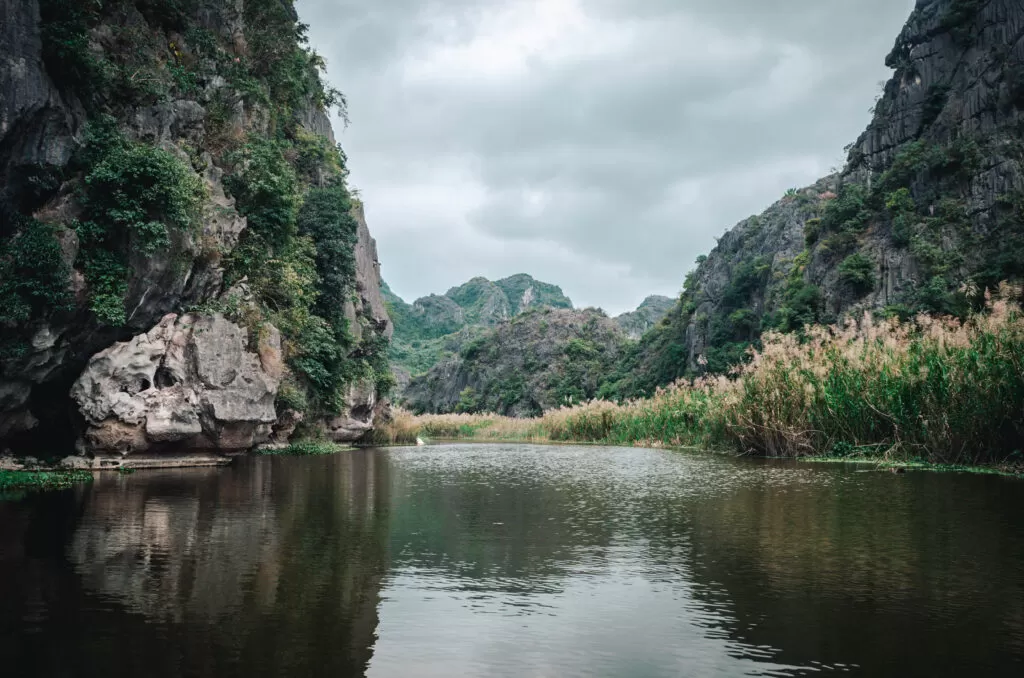
Van Long Wetland Nature Reserve in Vietnam
Drinking tap water in Vietnam isn’t generally recommended for travelers due to varying treatment standards and the risk of waterborne illnesses. Here are some final tips:
By following these tips, you can help ensure that your drinking water is safe and avoid potential health risks while traveling in Vietnam.
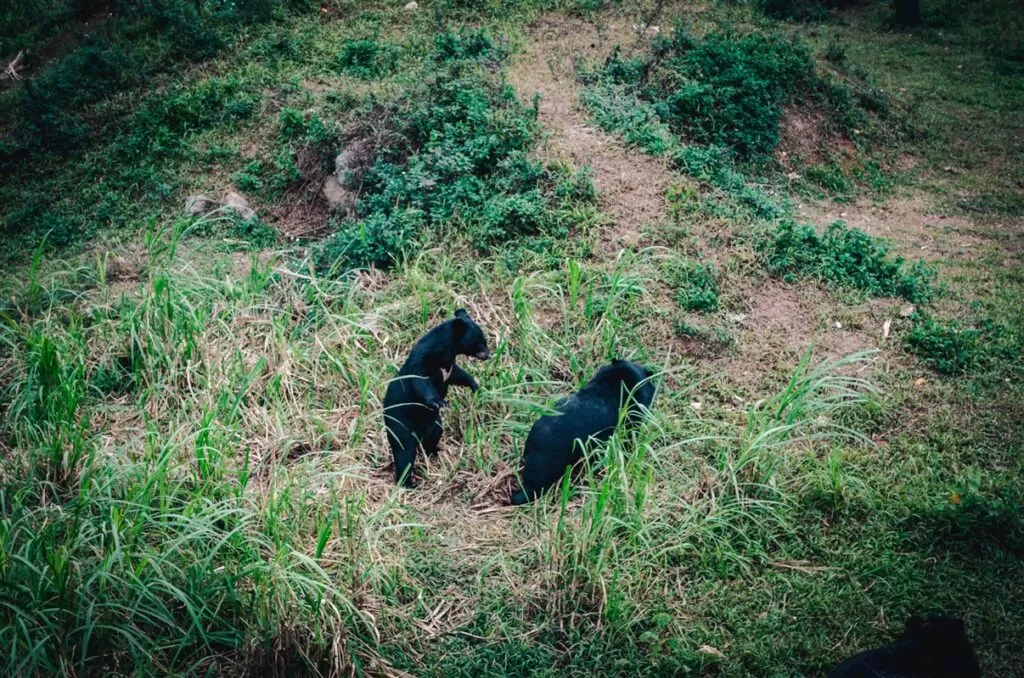
Bears at Ninh Binh Bear Sanctuary
There you go! We are at the end of this post about whether or not you can drink tap water in Vietnam. As you can see, it is not recommended to drink tap water in Vietnam unless it’s boiled or purified.
Let me know in the comments below if you have any questions or drop me a message through my contact page.
Also, don’t forget to check out my resources page with my favorite booking platforms and tips to start planning your trip. Additionally, have a look at my favorite travel gear if you want to pack more consciously!
ENJOY!
Disclaimer: This post may include affiliate links. If you click on them, I may receive a commission at no extra cost to you.
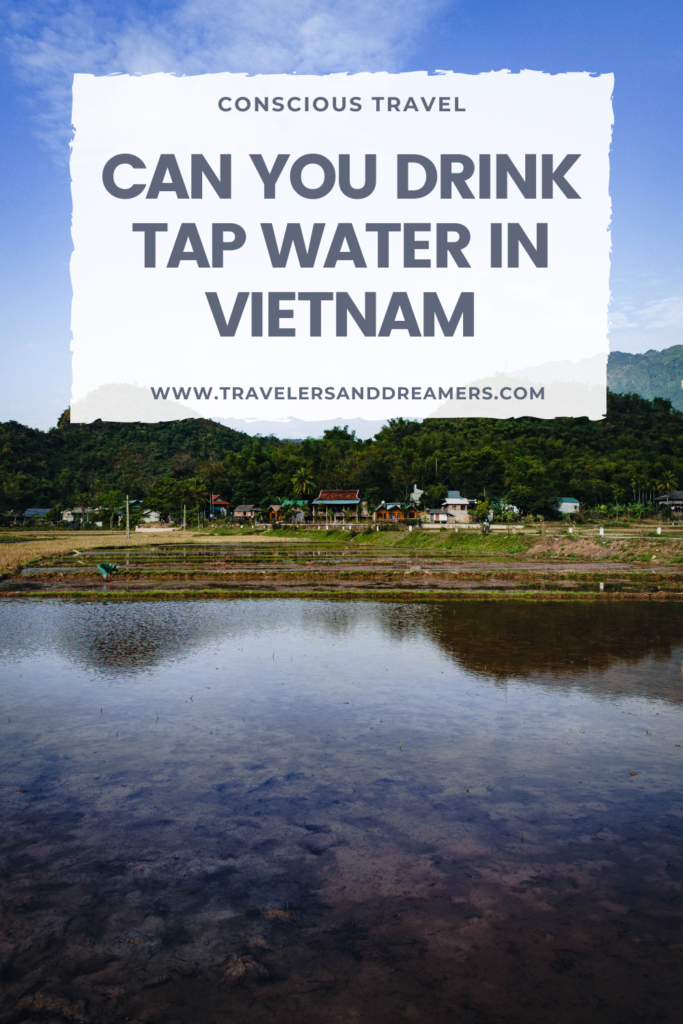
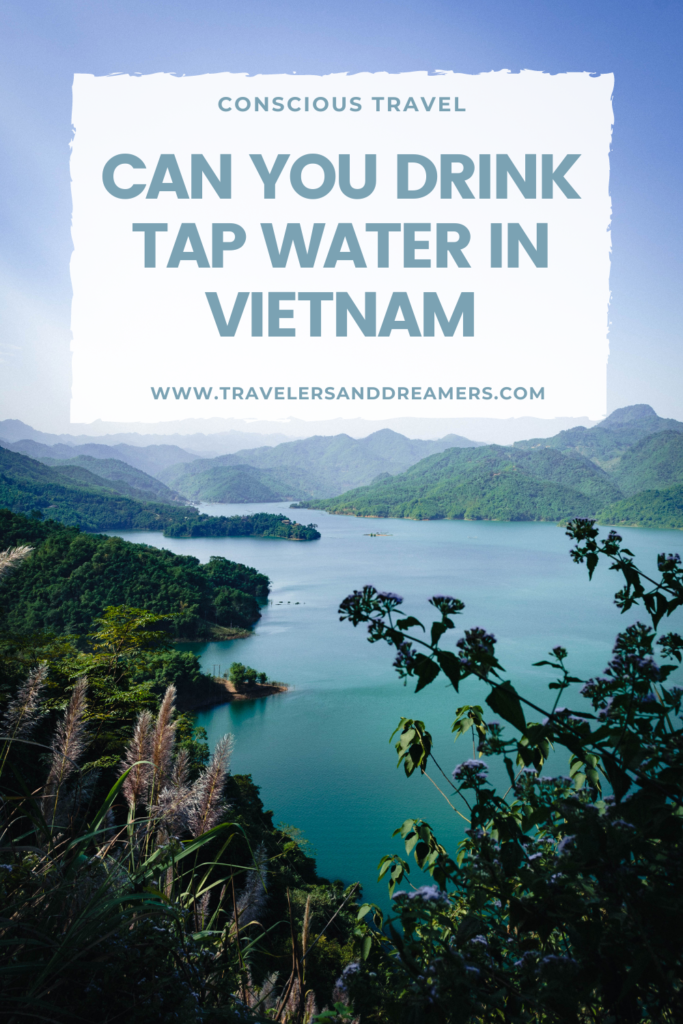

Hi! I am Annelies and this is Travelers & Dreamers, a blog about conscious travel which means traveling in a more mindful way, with a positive impact on the world and yourself!
On this website, I cover different topics like slow travel, plant-based food guides, responsible travel, sustainable packing, eco-travel, and more!
Latest Posts

15 Best Things to Do in Nong Khiaw, Laos (2024)
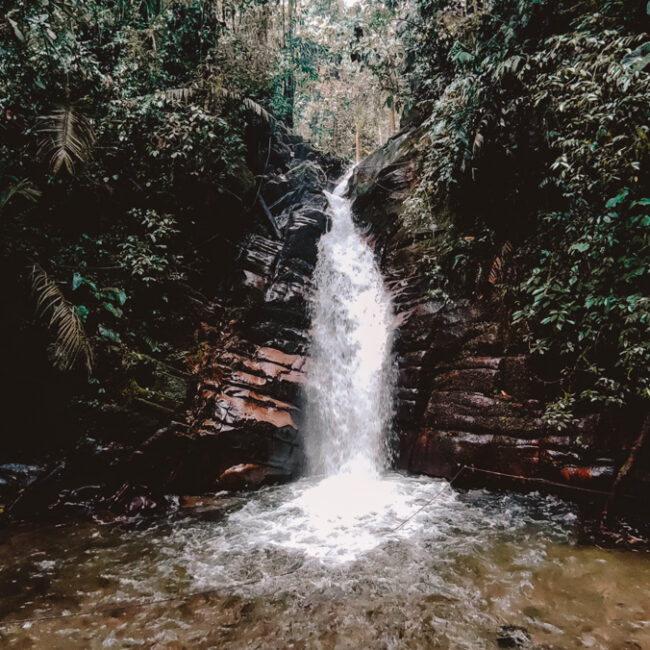
Santa Rita, Salento: All You Need to Know
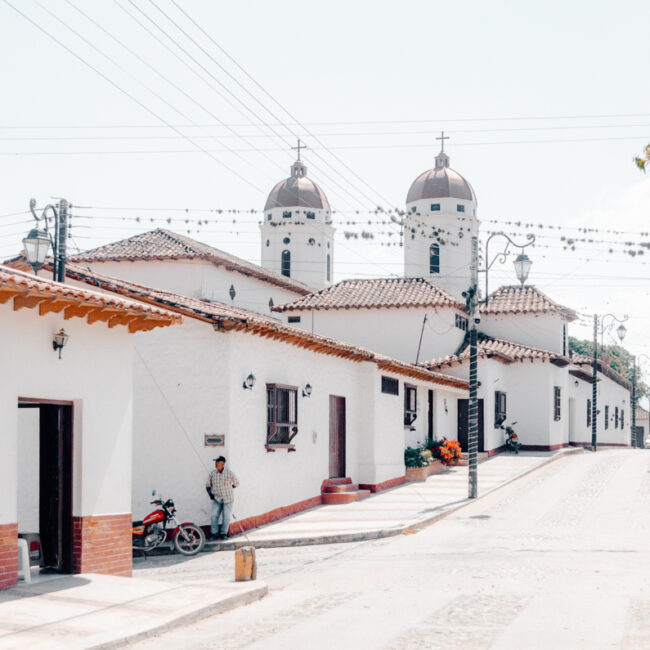
La Playa de Belen, Colombia: An Easy Travel guide!
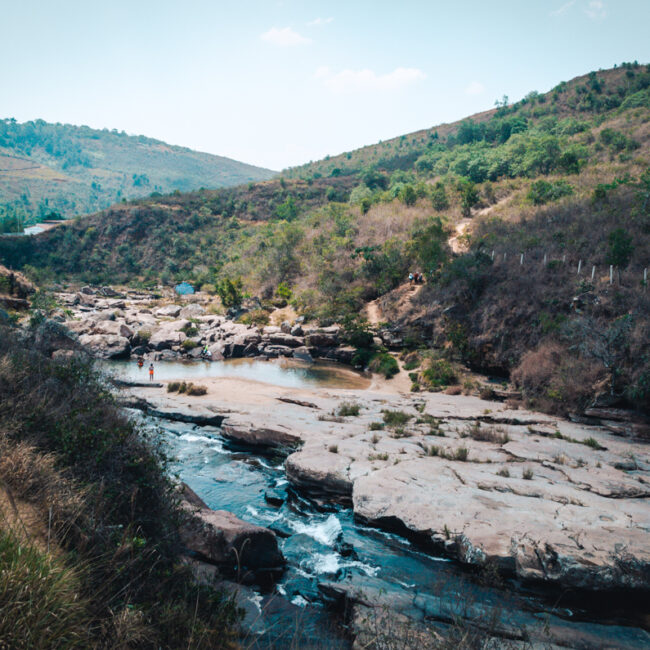
How to Visit the Pescaderito in Curiti (Near San Gil)
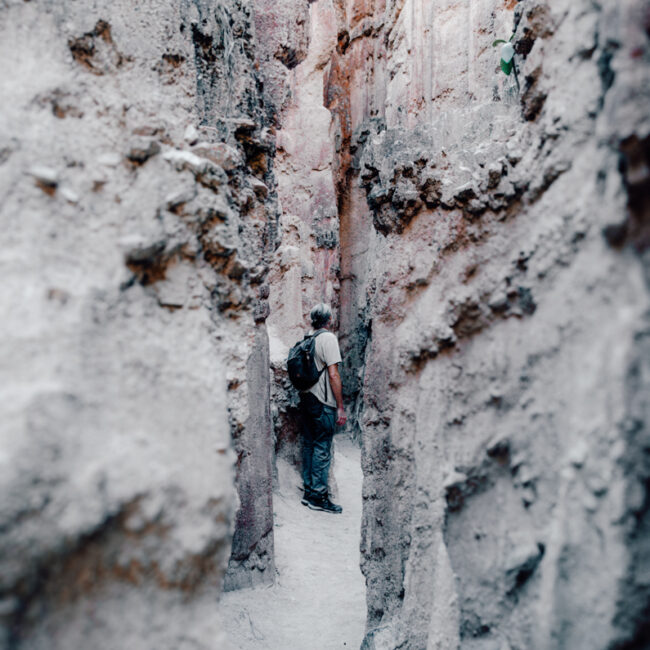
Los Estoraques Unique Natural Area: An Easy Travel Guide
Do you want to receive my latest finds on conscious and sustainable travel directly to your inbox? Subscribe here!
© COPYRIGHT TRAVELERS&DREAMERS, 2023.